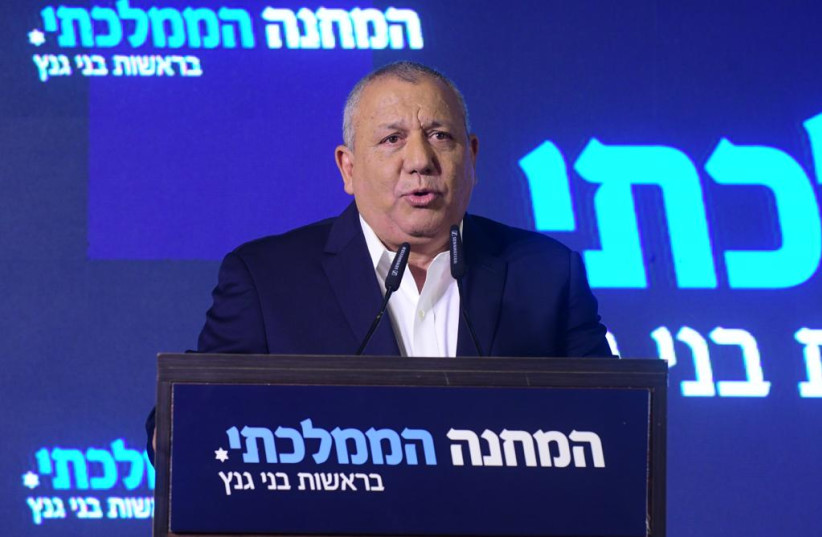Top current and former defense officials debated Wednesday night at the Jerusalem Institute for Strategy and Security conference at the Begin Center whether the IDF’s reserve units have improved their readiness and effectiveness or are in a constant and deteriorating state of chaos.
On one hand, IDF Commander of the Maneuvering Division Maj.-Gen. Sa’ar Tzur suggested that while recognizing multiple problems and dilemmas, the IDF has been proactive in responding and remodeling the mission of the reserves for the new era’s challenges.
He received support from former national security council chief Yaakov Amidror who said that while the reserves had plenty of holes, he had met with reserve units who have great pride in their readiness and that framing the issue as a “disaster” was itself a gross exaggeration.
Is the IDF reserves situation a disaster and only getting worse?
On the other hand, multiple former top IDF reserve officials between the ranks of brigadier-general and lieutenant colonel and other security experts said that the reserves have been a disaster for years, and that the situation is now even far more grave.

As he often does, former IDF chief and National Unity Party MK Gadi Eisenkot sought out a middle ground.
The former IDF chief told a story about how the Knesset Foreign Affairs and Defense Committee had failed to summon him to report on the reserves annually as required by law, such that he initiated a hearing before it after more than two years to bring its members up-to-date.
As he went through the different IDF reserve units, he said that some units were 70% ready, while others were 95% ready. In addition, he said that the air force’s reserve units are super critical and were generally in much higher levels of readiness than land forces’ reserve units.
Tzur described this state of very different levels of readiness for reserve units according to how necessary they were on a regular basis and in an emergency as “differentiation” – an intentional and thoughtful strategy due to limited resources.
Eisenkot said that “the reserves are critical to the operational functioning of the IDF in any war. The IDF cannot accomplish its job in a large general war without the reserves.”
“The reserves are critical to the operational functioning of the IDF in any war. The IDF cannot accomplish its job in a large general war without the reserves.”
Gadi Eisenkot
Although many think of the reserves as not likely to be used in actual combat, Eisenkot listed off that they were used in large numbers not only in the 1973 Yom Kippur and 1982 First Lebanon wars, but also more recently in 2002 Defensive Shield and in 2014 Protective Edge.
He explained that the IDF is preparing for a “multifront continuous conflict, with cyberattacks - this is the scenario we need to prepare for,” and which would require the reserves.
He said that he “understands the concerns of people who saw severe problems” with the reserves in the past, but that at the same time, the IDF has limited resources, many threats and must “manage its various risks” which sometimes means investing in new technologies or special forces at the expense of portions of the reserves.
In a rhetorical flourish, he asked, “can we keep everyone [all the reserves] at a high level of readiness? No.”
Continuing, he stated that in their dreams, the IDF would have thousands and thousands of Namerim, an advanced attack armored personnel vehicle that mixes many of the benefits of tanks with the benefits of faster vehicles.
But former Yesh Atid MK and security expert Ofer Shelach and others at the conference said that only a fraction of the reserves believed they would ever be used in combat and that this has ruined their morale.
Tzur admitted that many reserve combat fighters today feel new pressures against serving within the family and that the IDF is in a catch-22 of it becoming more expensive to maintain reserve units at the same time that reservists should be getting paid more to keep up with inflation.
The JISS conference organizer unveiled survey results of over 1,100 reservists showing deep discontent with how much the IDF pays them.
Also, the survey indicated that 66% of reservists feel they are viewed by current Israeli society as “friars” [suckers] for continuing to serve, such that employers, spouses and university professors have lost respect for reservists and do not support them when they miss work, family events or classes.
Eighty-four percent of those in Siboni/JISS’ survey found their pay partially or extremely insufficient.
Survey numbers from Tzur indicated that 65% of reservists were unhappy with their equipment, 40% do not show up when called and that around 82% were unhappy with their pay.
